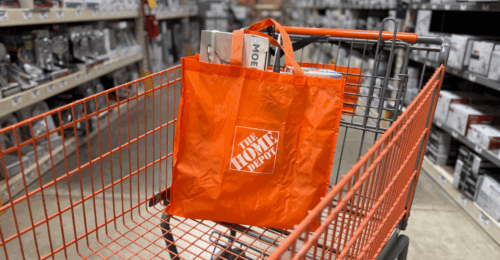When we describe a circular economy, we think of a continuous cycle of waste that is converted for use in new products. This regenerative, waste-free model results in a profound reduction in the impact humans have on the environment. Every day, companies are seeking for opportunities to contribute to the circular economy.
As the leading recycled materials manufacturer of wood-alternative decking, railing and other outdoor items, Trex® had been a supplier to The Home Depot for some time when they proposed turning plastic waste from The Home Depot’s supply chain into recycled decking.
With every truckload of new merchandise, The Home Depot stores unwrap multiple pallets, each of which is held together with shrink-wrap to ensure that the merchandise is secure. That shrink-wrap accumulates quickly. Rather than send it to the landfill, it’s put back on the truck and sent with pallets of returns to The Home Depot’s Return Logistics Centers, or RLCs. At the RLC, the shrink-wrap, also known as LDPE plastic, is consolidated, processed and sent to Trex where it’s converted into decking. Each year, over 84,500 tons (16.9 million pounds) of plastics are reclaimed and used to make Trex decking.
The Home Depot’s RLCs are a circularity model in themselves. Their mission is to centralize returns, repairs, defects and other materials. The RLCs deploy landfill avoidance efforts wherever possible. As such, the RLCs function like a behind-the-scenes material economy, turning broken, defective or otherwise unsellable items into above-ground resources. In 2019, The Home Depot recycled more than 15.1 million pounds of plastic waste from stores through the RLCs, which collect and consolidate wood and plastic.
The partnership between Trex and The Home Depot has been recognized both internally and within the sustainability community. In 2016, The Home Depot named Trex as its Environmental Partner of the Year. Today, Trex is the industry-leading composite decking product at The Home Depot stores and is made of 95% recycled materials.






